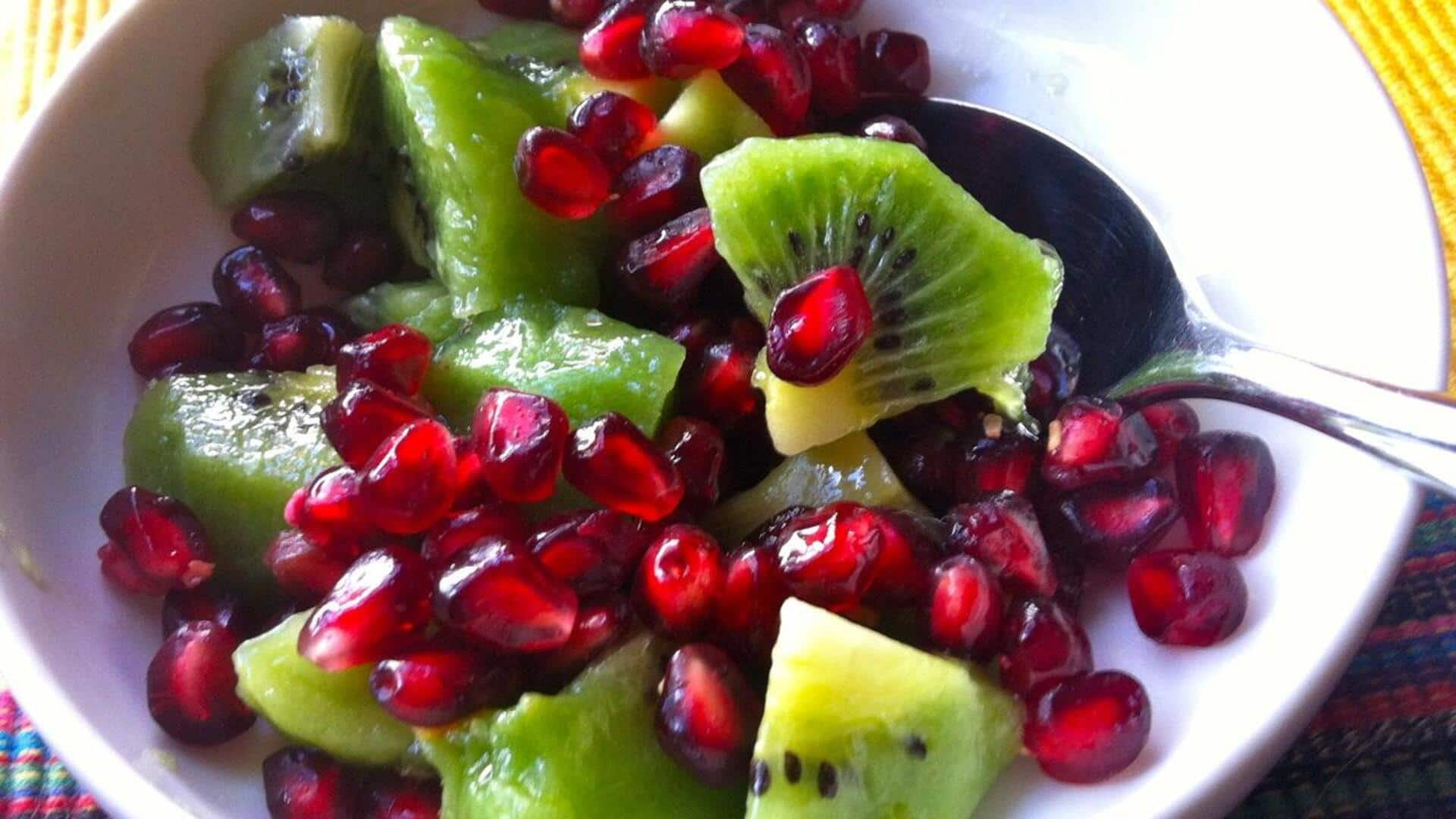
Kiwi or pomegranate: Which is more suited for you?
What's the story
Kiwi and pomegranate are two fruits that are often lauded for their nutritional benefits. Both are packed with vitamins, minerals, and antioxidants that can improve your overall health. However, they differ in their specific nutrient profiles and health benefits. In this article, we will take a look at the nutritional differences between kiwi and pomegranate, and how each can be a part of a healthy diet.
#1
Vitamin C content comparison
Kiwi is famous for its high vitamin C content, offering more than 100% of the daily recommended intake in a single serving. Vitamin C is important for boosting the immune system and keeping skin healthy. Pomegranates also have vitamin C, but in lesser amounts than kiwis. However, they offer other nutrients that complement vitamin C's benefits.
#2
Antioxidant properties explored
Both kiwi and pomegranate are loaded with antioxidants, which are important to combat oxidative stress in the body. Pomegranates are especially rich in polyphenols, which have been studied for their anti-inflammatory properties. Kiwis, on the other hand, are loaded with flavonoids and carotenoids that contribute to their antioxidant capacity. Both fruits can help protect cells from damage.
#3
Fiber content analysis
Fiber is an important part of a healthy diet, aiding digestion and keeping blood sugar levels stable. Kiwi offers about two grams of fiber per medium fruit, while a pomegranate has roughly four grams per fruit when the seeds are consumed. Eating either fruit can help you meet your daily fiber intake goals.
#4
Other essential nutrients present
Apart from vitamin C and fiber, kiwi provides potassium, which helps regulate blood pressure levels. Pomegranates are also a good source of potassium but provide more folate than kiwis, which is essential for cell division and DNA synthesis. Including these fruits in your diet can help you get these essential nutrients.